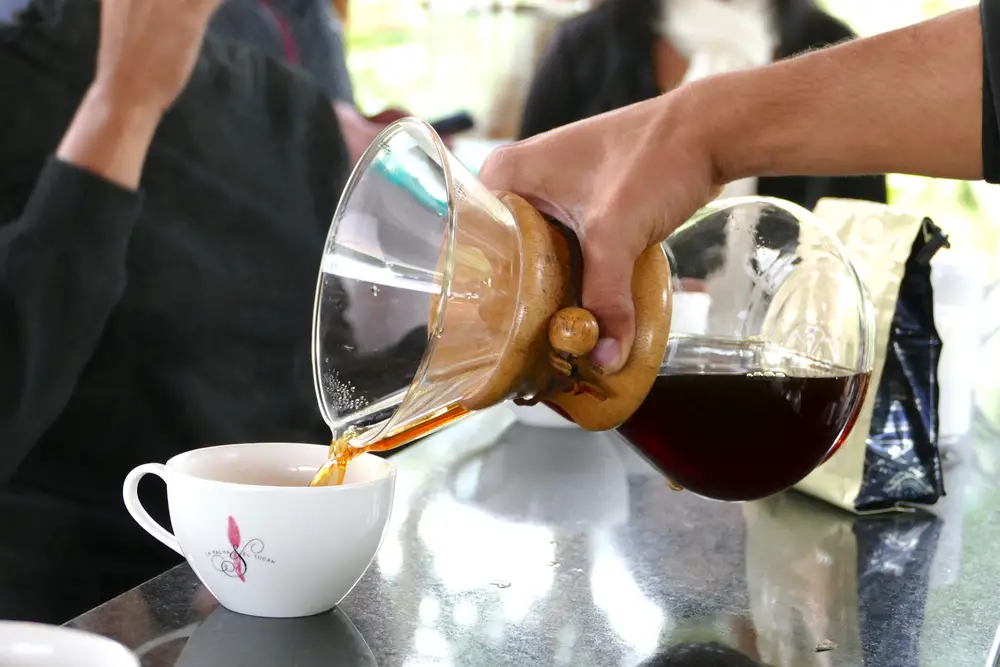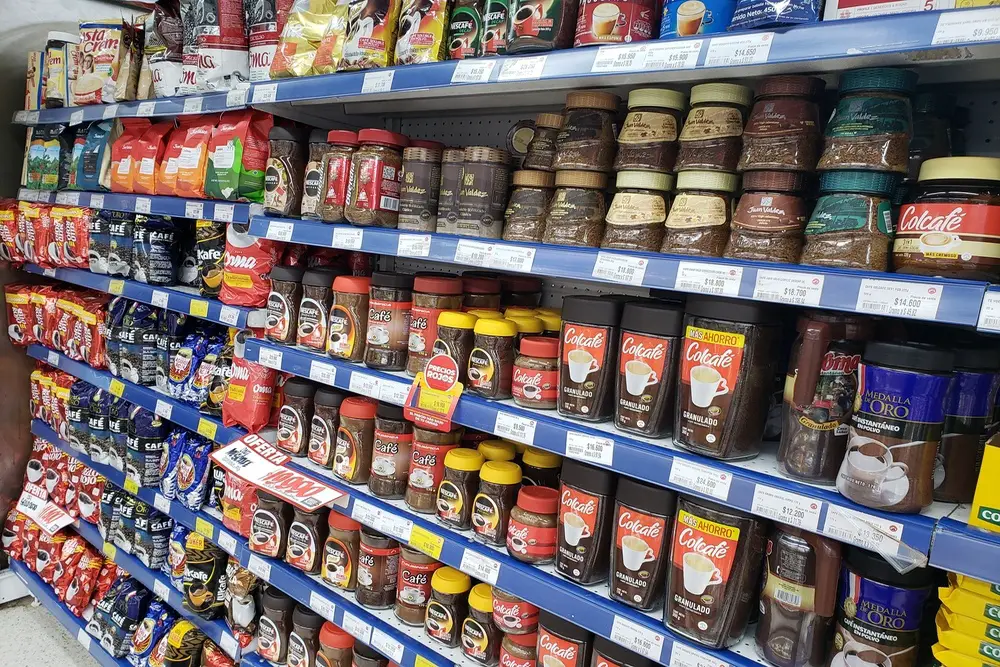The coffee industry is similar to the wine world. There are specialized tasters who are able to determine and at the same time assign the quality of a coffee.
One of the most well-known certifications is that of the Q-Grader coffee taster.
Table of Contents
The Q-Grader and the standardization of the coffee industry
First of all, you should know that in all areas of the coffee industry there are certifications that one must complete to become a barista and roaster, among other things.
So, an accredited Q-Grader is a person who has been certified by the Coffee Quality Institute (CQI).
The Coffee Quality Institute is a non-profit coffee organization responsible for creating the exams that Q-Graders must take.
The CQI accreditation exam was created in 2003 and today there are two types of Q Grader certifications that can be earned:
- The certification of the Café Arabica Q-Grader
- The Q-Grader Robusta coffee certification
Although the CQI is in charge of testing, it is the Specialty Coffee Association of America (SCAA), which evaluates and grants accreditation to the Arabica Q-Grader.
On the other hand, the Uganda Coffee Development Authority (UCDA) is responsible for approving and issuing the Robusta -Q Grader certification.
What are the certifications for?
First, the Arabica Q-Grader taster evaluates Arabica coffee to determine if it can actually be called a specialty coffee.
The Robusta Q-Grader, on the other hand, specializes in Canephora coffee to determine if the coffee qualifies as “fine bean coffee”.
What is coffee testing for?
Q-Graders test and judge the quality of the coffee by smelling and tasting the coffee.
In this way, the rating of the coffee is based on the assessment of 3 broad categories:
- The aroma of the coffee.
- The taste of the coffee.
- The acidity of the coffee.
It is therefore a matter of determining whether the coffee being evaluated can be considered a specialty coffee, and for this it must achieve a rating of at least 80 points.
Coffee sorting system
And what happens if the coffee gets a rating of more than 80 points? Well, in this case, other categories appear.
if the coffee is rated between 80 and 84 after cupping, 99 is considered very good coffee.
So, let’s look at the possible ratings.
| Coffee quality | Qualification |
| Coffee specialties | 80 points |
| Very good | Between 80 and 84.99 points |
| Excellent | Between 85 and 89.99 points |
| Terrific | Between 90 and 100 points |
Q Grader Qualification
The Q-Grader certification is not suitable for beginners as it is quite expensive and time-consuming. The exam costs around $2,000. The difficult and very strenuous exam extends over 6 days.
Examination parts Q-Grader
The exam is divided into a first part, which covers the first 3 days. During this time the participants will be tested on their theoretical and general knowledge about coffee.
In the second part, ie in the remaining 3 days, the examinees have to pass 19 tests in order to receive the Q-Grader certificate.
These 19 tests include ratings such as e.g.:
- Coffee tastings
- Smell tests
- Tests of sensory skills
- Test to detect bean roasts
- Skills in classifying and distinguishing green coffee from different varieties, among other tests
Examination tests (first level)
In the first three days, the examinee must complete several tests, including a written exam with 100 multiple-choice questions on various topics such as B:
- General aspects of coffee
- Coffee tasting
- Knowledge of coffee cultivation and processing
- Roasting knowledge
Examination tests (second level)
In the second phase, the applicants are examined as follows.
Tasting
In this category, the candidate is asked to cup different types of coffee. The aim is to evaluate the ability to distinguish between mild, African, Asian and natural coffee.
Triangulation test
According to expert Tomo Laca, this test uses the same coffee as the cupping tests, in the following way:
- The subject is allocated 3 cups of coffee; 2 cups contain exactly the same coffee, while the third cup contains a different coffee.
In this way, the participant only has to distinguish the types of coffee based on their smell and other properties.
Detection of acid in coffee
This test asks the test-taker to identify 1 of the 4 basic acids found in filter coffee:
- Acetic acid
- Citric acid
- Malic acid
- Phosphoric acid
Smell test
In this test, the subject has to identify several of the 36 aromas of coffee using a “Le Nez du café ” case containing extracts of the essence of coffee.
Then some of the bottles are labeled, some are not, and the examinee must be able to identify them all.
Test of sensory skills
Here the test-taker is asked to identify 3 basic compounds in coffee:
- Sweet
- The salty
- Acid
Both individually and in a mixture.
Roast degree detection
The participant must determine the degree of roasting of a coffee.
- An underdeveloped or insufficient degree of roasting
- A standard roast
- An overdeveloped roast level
Test to classify green coffee
Finally, the examinee is asked to identify a type of defect in both a green coffee sample and a roast coffee sample.
There are several ways to prepare for these exams
There are no prerequisites for taking the Q-Grader certification exam. However, those who are already in the coffee industry may have some benefit as their job will prepare them to some degree for some aspects of the exam.
But there are also people who are simply interested in the exam because they like the world of coffee or for purely professional reasons. Regardless of your group, there are a number of resources to help you prepare for and pass the exam.
For example, the Coffee Quality Institute (CQI) offers the opportunity to attend preparation courses for the certification exam and to keep up to date with the latest developments in the world of coffee.
The interesting thing about these courses is that they are held anywhere in the world by professional coffee experts, who may be coffee shop owners, academies or experienced roasters.
On the other hand, you should keep in mind that you might not pass the exam on the first try because, as said, the exam is difficult.
So, you will likely need a lot of preparation and several tries before you succeed.
What happens after passing the exam?
If the participant has successfully completed the tests, he will receive the Q-Grader license. This license is valid for 3 years. After the 3 years, a calibration exam must be taken to renew the license.
If a Q-Grader does not attend a calibration within five years of their certificate expiring, they must retake and pass the original course (not the calibration).
Recommendations for taking the exam
Coffee professionals and Q-Graders recommend the following preparation for taking the exam.
Try as many types of coffee as possible
In general, it is best to prepare for the exam in advance, that is, try as many different types of coffee as possible.
However, try not to saturate your sense of taste too close to the test date or you may have trouble judging the flavors.
Train your sense of smell
You can also buy a “Le Nez du Café” kit to get used to the different flavors of the coffee while preparing for the test.
Research as much as you can
Watch videos, articles, podcasts and generally any media related to coffee.
Remember that in addition to the practical exams, you must also acquire theoretical knowledge on subjects such as coffee production, coffee grinders, roasting processes, etc.
Experimenting with preparations
Create blends that emphasize sweet, salty, and sour flavors. This way you will have better chances in testing sensory skills.
Create an exercise habit
It is good to have a training system that you devote some time to each day, either to review theoretical knowledge or to further refine your senses of coffee perception.
Why a Q-Grader license?
A Q-Grader license certifies a certain standard of knowledge and ability. The license is therefore certainly useful for advertising purposes. The license can also help to work with other companies.
However, a Q-Grader license does not provide an accurate indication of how well qualified a person is, but certifies a minimum standard.



